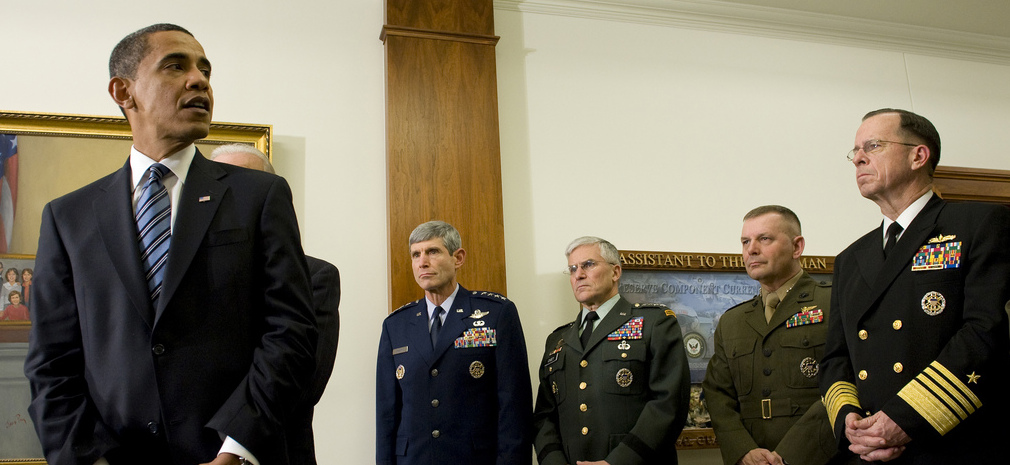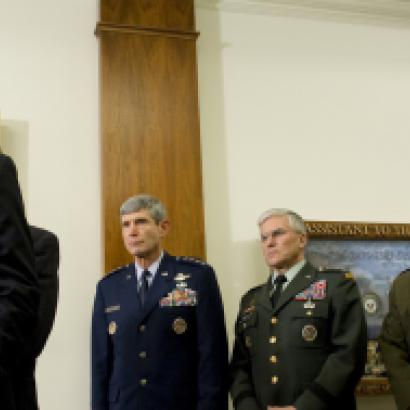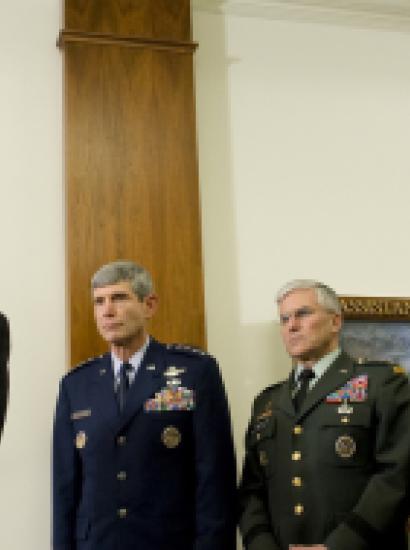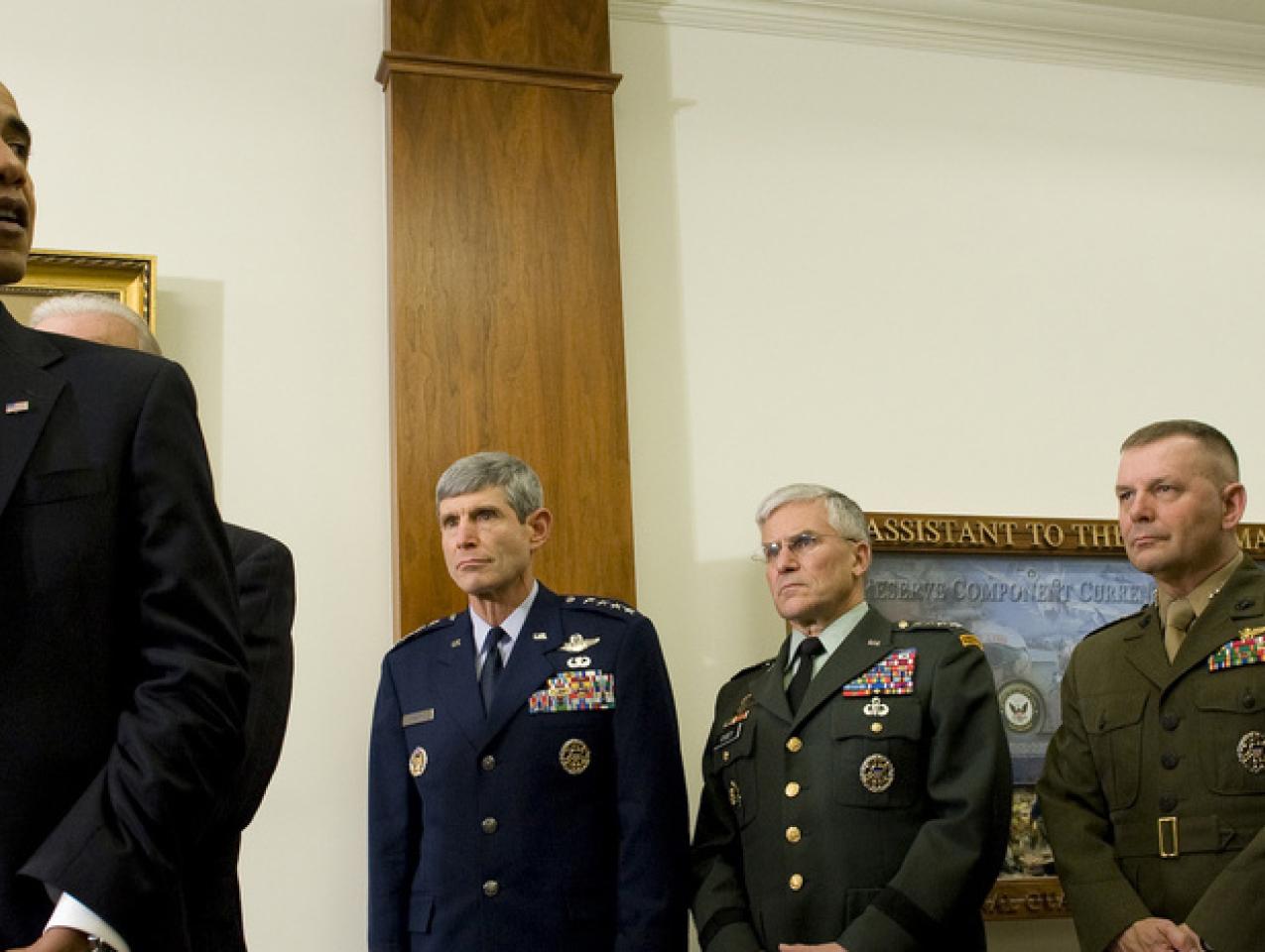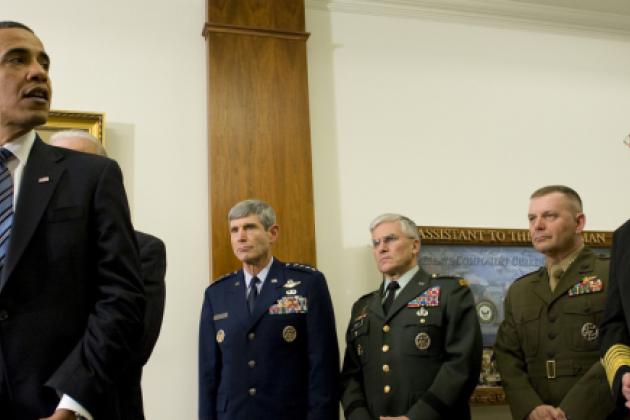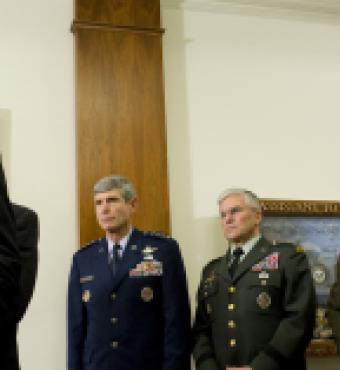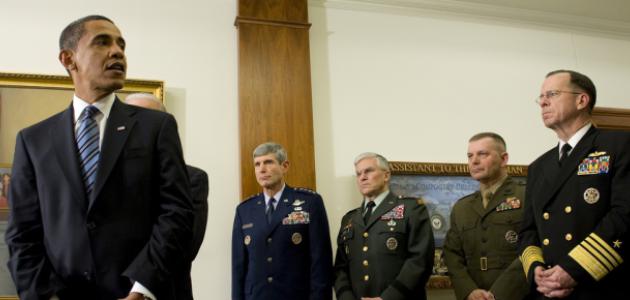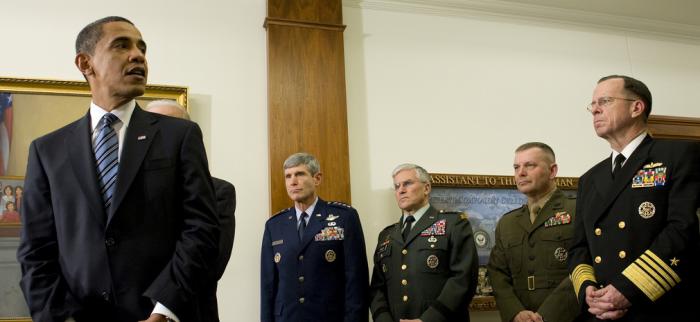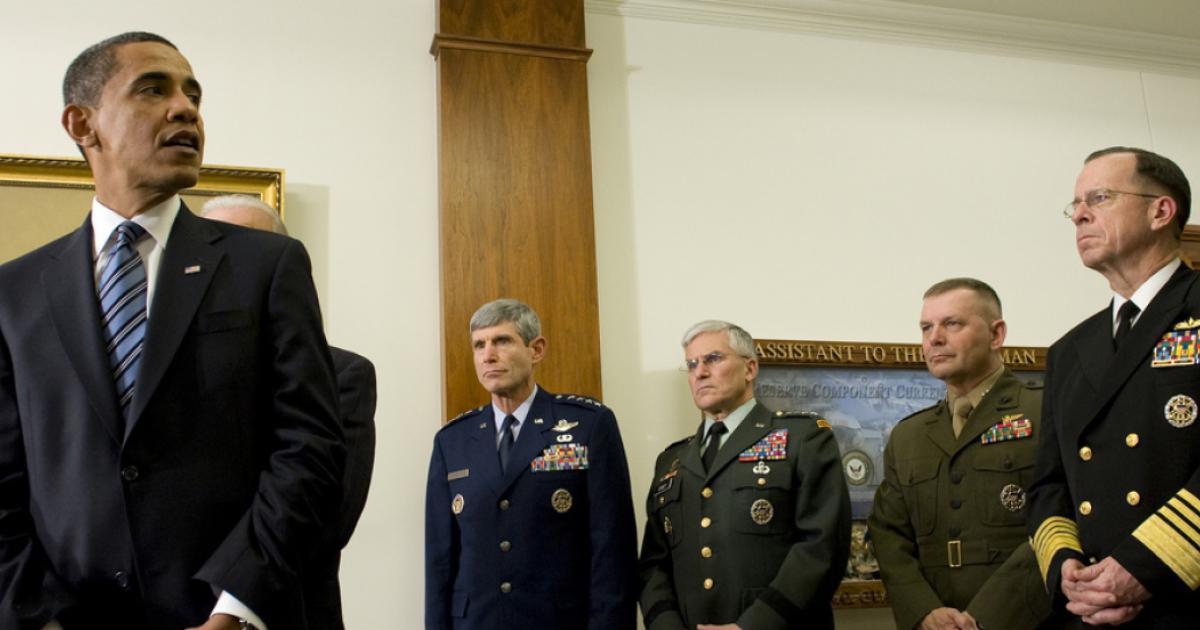Today’s debate over the uses and limits of American military power is, and should be, solely over means and not ends. In previous columns on the death of Pax Americana and the isolationist follies of Senator Rand Paul—follies that have perhaps diminished in recent days—I argued that there is no principled political disagreement on the ghastly and immoral activities of ISIS, the Islamic State. The only serious debate, therefore, lies in fashioning the right response. On that score, the prompt use of massive force, ground troops included, against an identified target with territorial control must be the first and indispensable step in the overall plan. Long-term economic responses, as some are advocating, may be wise but they will not work now.
Unfortunately, President Barack Obama does not quite see it that way. The President has been immobilized by his deep ambivalence over the use of force. Right now, his stated campaign relies on the limited use of air power largely to knock out ISIS fighters who threaten key dams and other infrastructure—which is all to the good—but he will not budge beyond that target. Before he will move more decisively in Iraq, Obama must be satisfied that the local factions will unite behind a viable plan. Yet he ignores the deep problem that no such plan is possible unless and until the United States puts more resources on the table and more troops on the ground. Before he will move against ISIS, he has to cobble together a coalition of nations and then gain buy-in from Congress—but, he insists, no troops on the ground, please. That decision has powerful consequences for by the President’s own reckoning, the lack of ground forces means that ISIS has a three-year lease on life, during which catastrophe can strike. It is no wonder that the President’s potential allies in the Arab world are skeptical of his all-too measured response.
Committing ground forces is always risky business. But not committing to the fray is risky business as well. Wars are subject to sharp turns, and, as Robert Kagan reminded us recently, dangerous situations can quickly spiral out of control, as they did in the 1930s and may again do so today. The successes of NATO in the dangerous post-war years came from the U.S. willingness to keep ground troops in Europe, where right now they are needed in places like Estonia, lest Putin try to repeat the 1939 annexation. The Israelis learned that lesson quickly when it became apparent in Gaza that even a splendid air force could not remove the need for a bloody land invasion to close the tunnels, disrupt ground movements and communications, and capture enough rockets to reduce the direct threat to Israeli citizens and territory. Indeed, historically, Israel as a nation could not have survived if it had not been prepared to use preemptive force in 1967 to take out Egyptian opposition. Not surprisingly, its greatest peril came in 1973 when it was caught flat-footed in the Yom Kippur War.
So why doesn’t Obama commit himself to decisive actions with ground troops? It can’t be because of the logistical difficulties that are involved. It is one thing to try to ferret out terrorists—which, tellingly, is a term the President won’t use—who are hidden away in mountain caves or inner city safe houses. But the moment they lay siege to helpless cities, occupy air bases, and proclaim their Caliphate, their strong territorial presence makes it possible to confront them on advantageous terms, at least before they further build up strength. We should do everything we can to help the Kurds and other Iraqis, but it is foolish for us to wait until their forces coalesce to bear the brunt of the fighting alone, even if aided by American advisors. A strong military presence is the only way to counter the territorial expansion of ISIS.
The Obama personal hesitation stems, unfortunately, from reasons unrelated to the military and political issues. Part of his problem is that he cannot bring himself to acknowledge that he was wrong to oppose the Iraqi surge in 2006, and wrong to pull out American troops from Iraq as President. A strong president learns from his past mistakes, but Obama does not.
One reason for his dogged persistence lies in his flawed world view, which deep down, regards the United States (and Israel) as akin to colonial powers, whose actions should always be examined under a presumption of distrust. His ingrained uneasiness with the values of western civilization makes it impossible for him to think and act as the leader of a western nation. Instead, he much prefers to regard himself as a nonpartisan critic and a bystander to world affairs. He has no firm conviction in the rightness of his cause, and hence no confidence in his ability to get others to act as perils mount.
What makes the situation even worse is that Obama receives support from commentators and public intellectuals who think that his reluctance to commit military force should be commended as part of some grand plan to restore American hegemony by gentler means. Just that kind of thinking was evident in a recent column by Thomas Friedman, “Leading From Within,” which refuses to come to grips with the short-term peril that ISIS presents. Friedman accepts the conventional analysis that the 2003 invasion of Iraq was a mistake and ignores the current short-term military crisis in order to piece together some long-term strategic plans to make things better. One of his suggestions is that the United States remove its self-imposed limitations on the export of oil products. Of course, that proposal is correct. But it is an insufficient response to the perilous military situation today in the Middle East. It is also correct even in times of peace because free trade policies always work to the long-term advantage of our nation and the world. In good times, as well as bad, a global increase in the supply of oil will enhance prosperity at home and abroad.
The dubious arguments against fracking technology have ever weaker foundations as the technology continues to become both safer and more energy efficient. There is little environmental risk at home (especially compared to coal), and there is much to gain from boosting overall levels of economic activity, which can never be done by piling huge subsidies into Friedman’s preferred clean energies that still don’t work very well. Indeed, if freeing up oil exports had been done years ago, it would have long ago reduced world dependence on both Russian natural gas and Middle Eastern oil, which could have reduced the risk of aggressive action long before it occurred.
It is also clear that the release of American oil overseas suffers from none of the serious difficulties associated with the imposition of sanctions. Quite simply, no adversary (and no friend) can evade the reality of more abundant energy supplies. Yet, it is often difficult to get our friends to implement sanctions, and easy for our enemies to dull their effect, by dealing with third parties who treat the absence of American competition as an open invitation to expand business with rogue nations like Russia.
That said, Friedman’s approach is insufficient because it works off of the wrong time frame. The issue of oil exports is inevitably contentious and the President’s self-image as a reluctant champion of free trade will slow this train down for weeks, months or years. Friedman makes matters still worse by insisting that we tie the change in oil export policy to an acceptance of his regime of stiff carbon taxes to counter global warming, thereby dashing its chances of passage, thereby further delaying a sensible economic response. So after Friedman’s endless speculations, the vital issue that remains is what should be done today militarily, and not tomorrow economically.
So it is back to the military and diplomatic options. At this point, it is quite clear that the greatest obstacle to getting things done overseas is the allergic reaction domestically to foreign entanglements, given our mixed record of failed ventures. Indeed it is just on this point that presidential leadership is so critical. It is instructive that even Friedman’s co-columnist at the Times, Maureen Dowd, rightly frets that an embattled Obama, convinced of his “Solomonic wisdom and Spocky calm” will continue to wallow in self-pity—thinking of himself as the helpless prisoner of events—rather than make a decision about what to do. In this time of peril, we need a President with courage to put aside the political and ask this one question: what mix of American force and diplomacy can bring a halt to the growing disintegration of world order.







